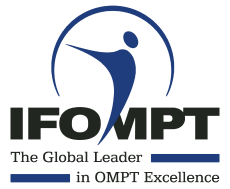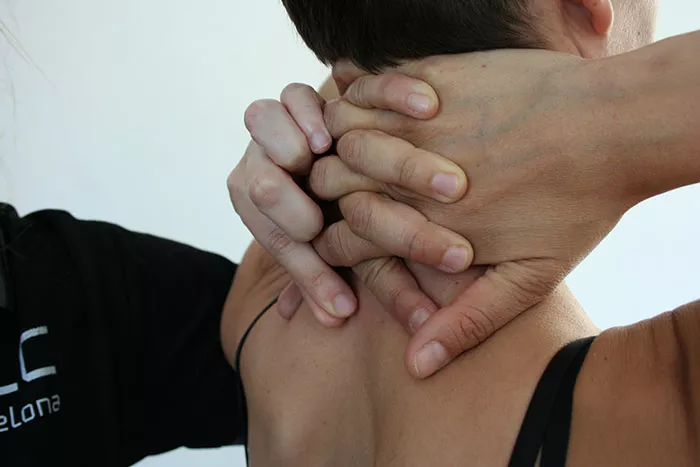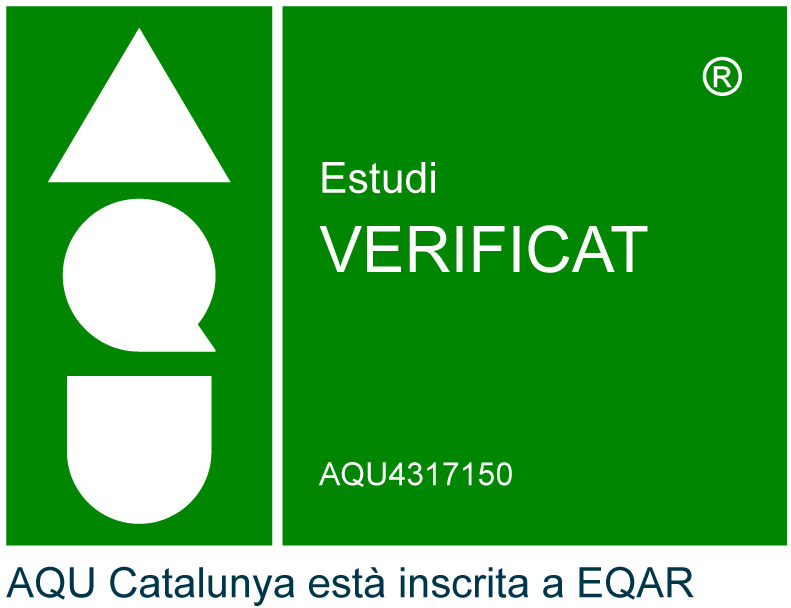University Master’s Degree in Orthopaedic Manual Physiotherapy (OMPT) - Official
Orthopaedic Manual Therapy is an area of specialisation within Physiotherapy that integrates all the information and experience of Manual Therapy applied since ancient times, classical physiotherapy, sports medicine, orthopaedic medicine, chiropractic and osteopathy, grouped under a common denominator: clinical reasoning and scientific evidence.
With this university master's degree, you will acquire a professional and research profile that consolidates the roles you will need as a specialised manual physiotherapy professional including diacutaneous fibrolysis, neurodynamic techniques and dry needling.
You will use highly specific assessment and treatment approaches that include manual techniques and therapeutic exercises, in compliance with the educational standards of the International Federation of Orthopaedic Manipulative Physical Therapists Incorporated (IFOMPT).
Why take this master’s degree at UIC Barcelona?
- Faculty with PhD in Physiotherapy and actively working in a clinical setting.
- 150 hours of one-on-one Mentored Clinical Practice.
- Work placement agreements with IFOMPT-accredited professionals.
- Includes certifications for Diacutaneous Fibrolysis (40 hours), Neurodynamics (40 hours) and Dry Needling (80 hours).
- The only university master's degree in Spain and in Spanish-speaking countries recognised by IFOMPT.
Internationally recognized by:

Objectives
The curriculum’s main objectives may be summarised as follows:
- To adopt a procedural approach based on patient-centred care, current scientific evidence and measurement results.
- To recognise the risk factors, precautions and contraindications and involve the patient in the assessment and treatment process.
- To determine whether the OMPT treatment is suitable for a particular patient.
- To perform a comprehensive assessment of the patient’s neuro-musculoskeletal system, including functional abilities and conditions.
- To establish a clinical diagnosis and design a comprehensive treatment plan as a main component of a multidisciplinary team within the health system.
- To gain a command of all OMPT therapeutic procedures with a view to alleviating pain and optimising the patient's functional abilities.
- To base clinical practice on advanced clinical reasoning as part of a patient-centred care model.
- To design and actively take part in health management and promotion programmes as an integral part of an interdisciplinary team within the process of providing individual care to a patient/client.
- To critically examine current scientific evidence and integrate this evidence and the patient’s preferences and clinical symptoms into the treatment process.
Prospective students
Holders of a degree in Physiotherapy
Academic accreditation
Máster Universitario en Fisioterapia Manual Ortopédica (OMPT) por la Universitat Internacional de Catalunya

Additional information
Presentation
According to the definition provided by the IFOMPT and WCPT, Orthopaedic Manual Physiotherapy is a specialised area of physiotherapy for the assessment and treatment of neuro-musculoskeletal conditions. It is based on clinical reasoning, the available scientific and clinical evidence and the biopsychosocial framework of each individual patient. It uses highly specific assessment and treatment approaches including manual techniques and therapeutic exercises. Orthopaedic Manual Therapy combines the information and experience of Manual Therapy, which has been applied since ancient times, Classic Physiotherapy, Sports Medicine, Orthopaedic Medicine, Osteopathy and Chiropractic under one common denominator, clinical and scientific evidence. OMPT treatment is based on a comprehensive assessment of the patient’s neuro-musculoskeletal system and functional abilities. The aim of the assessment is to define any conditions present in the patient’s systems (joint, muscular, nervous or any other relevant system) and explain how these conditions are related to any disability or functional limitation, as described by the WHO’s International Classification of Functioning, Disability and Health (ICF). Likewise, the OMPT assessment seeks to determine the clinical situations in which the use of OMPT is indicated or contraindicated or requires special precautions, as well as situations in which the anatomical anomalies or pathological processes limit or restrict the use of OMPT procedures. Lastly, throughout the OMPT assessment process, practitioners must determine whether, in light of the patient’s clinical situation, the treatment should be aimed at reducing symptoms or whether it can be used to improve the patient’s functional abilities.
OMPT physiotherapists undertake to provide patient-centred care and use procedures based on evidence and measurement results. They are required to perform a physical clinical diagnosis, decide whether the treatment is suitable for the patient, recognise the risk factors and contraindications and identify any precautions that must be taken. They will also design an overall treatment plan and carry it out integrally or as part of a multidisciplinary team. OMPT physiotherapists are capable of acting as the patient’s primary caregiver or as a member of a multidisciplinary team within a health system.
Advanced clinical reasoning skills are, along with manual abilities and skills, essential to the practice of OMPT. These skills are used in a patient-centred model in which the role of the patient/client in the decision-making process is an intrinsic part of the procedure. To acquire and integrate these abilities and skills, we offer a structured educational model that adapts perfectly to the European curriculum (Bologna Declaration, 1999), in which, over the course of 60 ECTS, OMPT students will develop a professional and research profile that incorporates the seven roles that will confirm them as professionals specialised in Manual Physiotherapy: OMPT physiotherapists as clinical decision-making experts, teachers, communicators, collaborators, administrators, health care advocates and health professionals. Each area of action is perfectly defined and structured based on the relevant competences, knowledge, skills and attitudes that students must acquire by the end of the programme.
Director:
- Dr. Pere Ramon Rodríguez Rubio
Coordination:
- Dr. Andoni Carrasco Uribarren
Academic committe:
- Dr. Andoni Carrasco Uribarren
- Dr. Pere Ramon Rodríguez Rubio
- Dra. Sara Cabanillas Barea
- Dra. Silvia Pérez Guillén
Internship
The subject External Clinical Practicums (PCE) takes place during the second semester, between January and July (inclusive).
The PCE subject totals 5 ECTS credits, of which 75 hours take place onsite and is conducted in external public and/or private clinical centres. You can check the list of centres at the following link.
These hours are closely supervised by the clinical tutor, with a one-to-one supervisory ratio (each clinical tutor supervises only one student at a time).
It is possible to choose the centre, location, specific dates and schedule. This choice is made once training has begun.
If you are interested in doing the clinical practicum at a centre that is not on the list, you can let us know and the University will begin the procedures to set up the cooperation agreement. The main requirement is that an OMPT physiotherapist who has completed IFOMPT-accredited (International Federation of Orthopaedic Manipulative Physical Therapists Incorporated) training is working in that centre.
Open days
Attend the upcoming information session
Admission calls
Application Process Deadlines for 2023-2024
First call for applications
- Deadline for submitting documents: 16 February 2023
- Online interviews with preselected candidates: 23 February 2023
- Communication of results: 27 February 2023
- Deadline to reserve a place: 14 March 2023
Second call for applications
- Deadline for submitting documents: 23 March 2023
- Online interviews with preselected candidates: 30 March 2023
- Communication of results: 3 April 2023
- Deadline to reserve a place: 18 April 2023
Third call for applications
- Deadline for submitting documents: 20 April 2023
- Online interviews with preselected candidates: 27 April 2023
- Communication of results: 2 May 2023
- Deadline to reserve a place: 17 May 2023
Fourth call for applications (only if places are available)
- Deadline for submitting documents: 18 May 2023
- Online interviews with preselected candidates: 25 May 2023
- Communication of results: 29 May 2023
- Deadline to reserve a place: 13 June 2023
Fifth call for applications (only if places are available)
- Deadline for submitting documents: 22 June 2023
- Online interviews with preselected candidates: 29 June 2023
- Communication of results: 3 July 2023
- Deadline to reserve a place: 18 July 2023
*Following each step, the applicants will be notified if they have been:
a) Accepted: You will receive your acceptance letter along with instructions on how to pay the deposit and reserve a place. Acceptance will only be confirmed upon payment.
b) Placed on a waiting list: Your application will be reviewed again during the next call.
c) Not accepted
Documents submission must be complete in order to include the applicant in each admission call. If some documents are missing, your application will be kept until completed and reviewed during the next admission call.
Research
Research in the Department of Physiotherapy is divided into three thematic topics. The first is related to the evaluation of the effects of physiotherapeutic interventions related to the application of manual and instrumental techniques and active exercise. The second examines the use of therapeutic exercise and movement control techniques to promote neuromotor development and treat of the locomotor and nervous system disorders. The third focuses on the assessment of functional and aerobic capacity, as well as the use of physical exercise as a rehabilitation tool in patients with cardiorespiratory and metabolic diseases.
The Department of Physiotherapy will be using the Biomechanics and Exercise Physiology Laboratory to carry out the studies.
You can check the details, objectives and composition of the three work groups exploring these areas here.
Prerequisites & admissions
Required documentation
Students with an official university degree from within the European Union
- An attested original photocopy of their original degree certificate or of the homologation of the same, or an original attested photocopy of the receipt for payment of fees for issuing the degree certificate.
- An attested original photocopy of your academic transcript containing your marks for the university studies you have completed.
*If the documents are in a language other than Spanish, Catalan, English, French or Italian, please submit a sworn Spanish translation of your degree certificate and academic transcript.
Students with an official university degree from outside the European Union
- A legally certified original photocopy of your original degree certificate.
- A legally certified original photocopy of your academic transcripts from past university studies.
* The legal certification of documents should be undertaken submitted legalised in the country of origin, or if applies, by the stamp of the Haya Agreement or the Andrés Bello Agreement.
*If the documents are in a language other than Spanish, please submit a sworn Spanish translation of your degree certificate and academic transcript.
In all cases
- Two passport-sized photos.
- A photocopy of your national ID card (DNI) or passport.
- An up-to-date CV.
Reservation and enrolment
Once accepted, you must pay 20% of the full cost of the postgraduate degree in order to reserve a place.
The remaining 80% must be paid in one lump sum once enrolment is complete.
Grants & financial aid
Grants
We do not offer grants for postgraduate studies. For financial aid, you must contact non-UIC Barcelona institutions.
Funding
We have agreements with a number of different banks through which you can fund your degree on favourable terms. See the following document for information on the terms and conditions.
Discounts
If you are a UIC Barcelona Alumni member you are eligible for special discounts:
